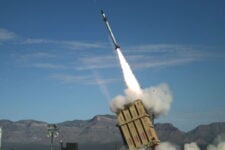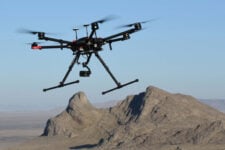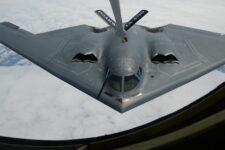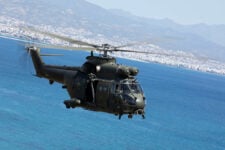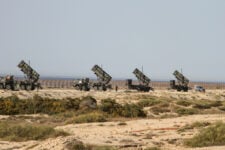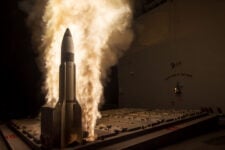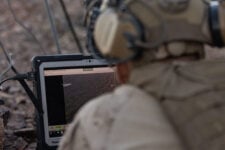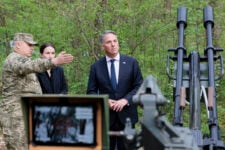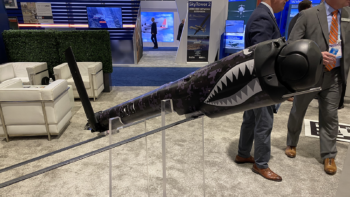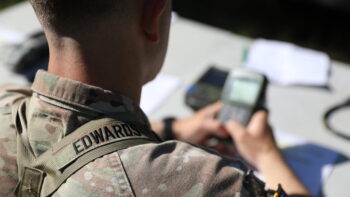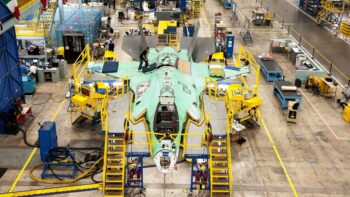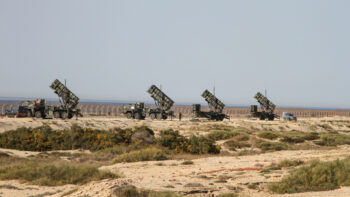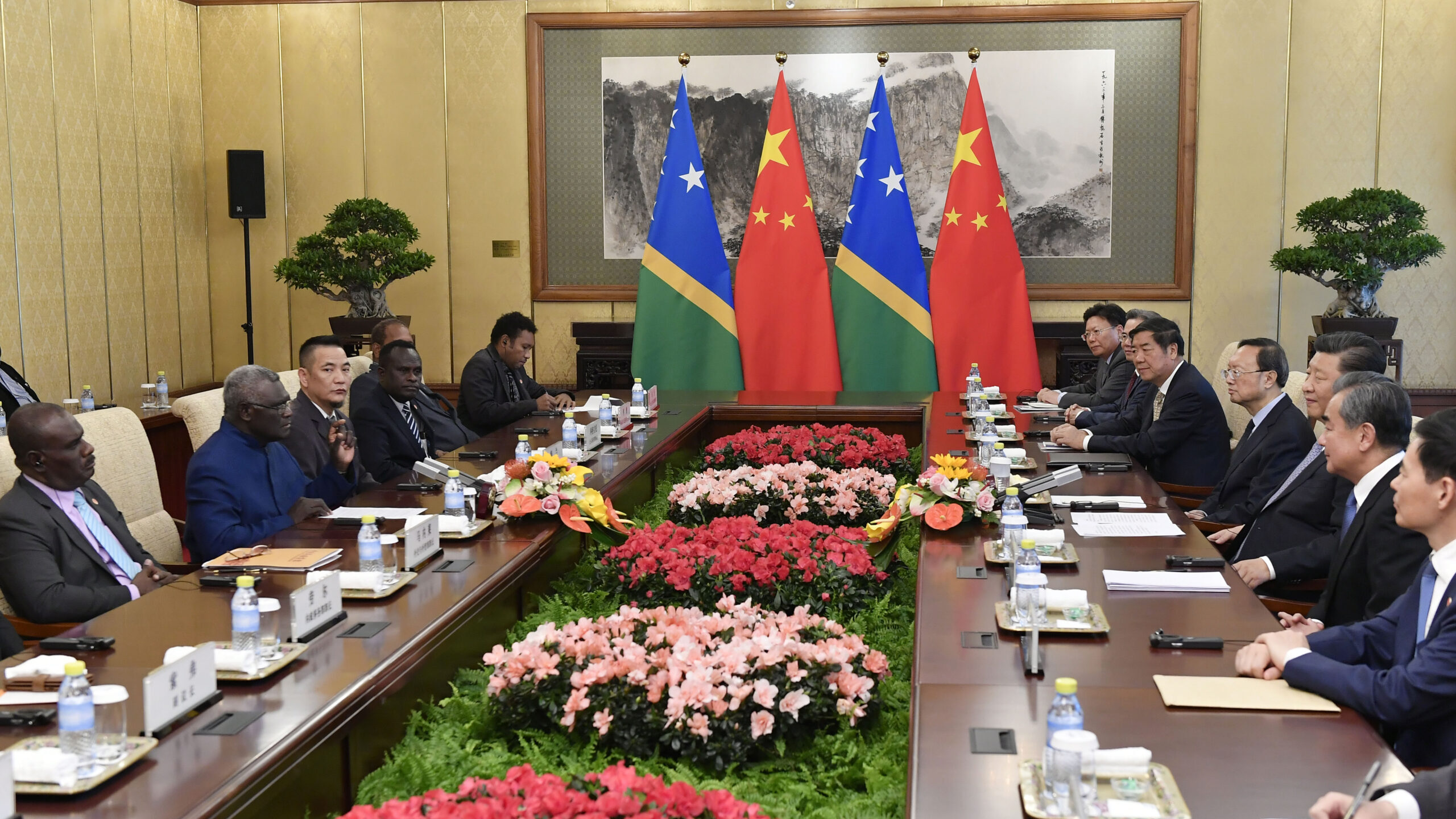
Prime Minister Manasseh Damukana Sogavare (2nd L) of the Solomon Islands meets with Chinese President Xi Jinping (3rd R) at the Diaoyutai State Guesthouse on October 9, 2019 in Beijing, China. (Photo by Parker Song-Pool/Getty Images)
SYDNEY: In what may become a major issue in Australia’s federal election campaign and could alter military strategy in the Pacific, China has announced it and the Solomon Islands have inked a security agreement that was opposed by Australia and the United States, among others.
“That is clearly something that has serious strategic consequences for Australia. It means our region is less secure. And it means the security risks Australia faces just got greater on Mr. Morrison’s watch,” the leader of the Labor Party opposition in the Senate, Penny Wong, said on Australian Broadcasting, referring to Prime Minister Scott Morrison. Wong’s criticism is a barb aimed straight at the heart of Morrison’s Liberal party’s attempts to make this what some Australians are calling the khaki election.
RELATED: Australia, US grapple with Solomon Islands tilt to China
Chinese State Councilor and Foreign Minister Wang Yi and Solomon Islands Foreign Minister Jeremiah Manele “officially signed the intergovernmental framework agreement on security cooperation,” China’s foreign ministry spokesman Wang Wenbin said at a regular briefing in Beijing. He did not say when or where the signing took place.
Australian Foreign Minister Marise Payne cited “the lack of transparency with which this agreement has been developed, noting its potential to undermine stability in our region,” in a statement this evening.
A top Australian China expert, Peter Dean at the University of Western Australia, told Breaking Defense the signed agreement demonstrates that Australia had not met its goal of being “the security partner of choice” in the South Pacific. The failure to ensure “no external power with interests inimical to Australia has any serious security presence there,” is, he said, “a major worry.”
Morrison’s “government has really dropped the ball on this,” he said in an email. “The US will rightly be asking why they were willing to send their leading Indo-Pacific strategic coordinator [Kurt Campbell of the National Security Council] to the region and we couldn’t manage the foreign or defence minister? Why had the warnings last year had not been taken more seriously?”
The leader of the Solomon Islands’ Democratic Party, Matthew Wale, said on March 28 that he warned Australian officials in August last year about the fact China was negotiating a military pact with his country and they “did nothing.”
So Australia was apparently warned in plenty of time and did manage to send three senior Australian officials to try and change the mind of the Solomon’s Prime Minister Manasseh Sogavare. Why was the usually Lucky Country not so this time? An important reason is that the Morrison government, Dean argued, “has not been engaging South Pacific states on their terms when it comes to security — especially climate change.”
The government has been extremely reluctant to accept climate change and appears to rarely make it a factor in discussions with many of those who are most affected by it, the island states of the South Pacific. Australia, of course, depends heavily on coal and gas exports.
In the coming days, the White House’s Campbell will arrive in the Solomons with Daniel Kritenbrink, assistant secretary of State for East Asian and Pacific affairs, to discuss the pact and its implications with Sogavare.

